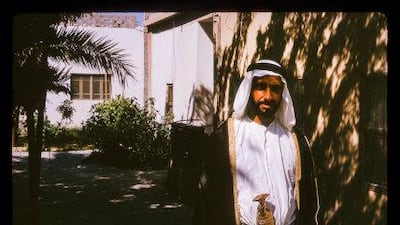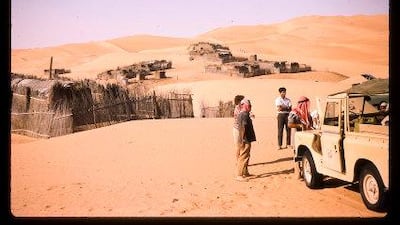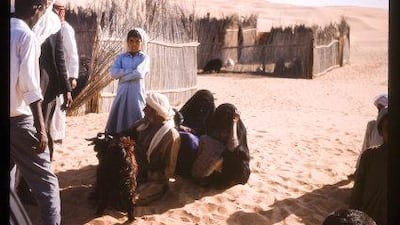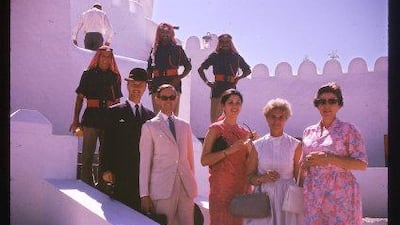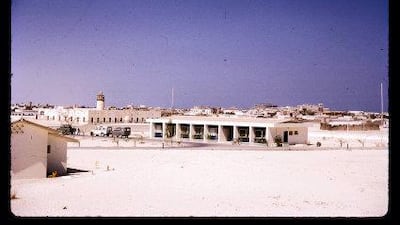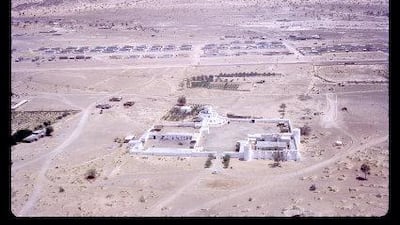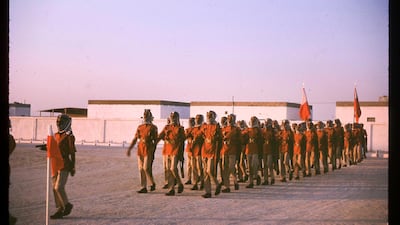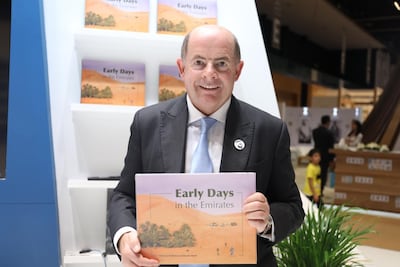When a young Nick Cochrane-Dyet arrived in Abu Dhabi in 1965, the Arabian leopard roamed Jebel Hafeet and going to the cinema meant films projected onto palace walls.
It was a world of wonder for a young British boy. Life was touched by the immense possibilities that followed the discovery of oil, yet tempered by lingering poverty.
“As a child, all I remember seeing was sand dunes everywhere and only later, upon my return as a teenager would I come to understand, just how poverty-stricken it had been at the time,” he said.
His new memoir, Early Days in the Emirates, looks back at those days before and after unification, the friendships forged and hard lessons learnt as the country modernised.
Cochrane-Dyet's first visits here came during the summers to see his father who was an army officer with the Trucial Oman Scouts in the closing days of the British presence here.
By 1975, he returned to work at Sheikh Zayed's royal stables in the Al Ain village of Mezyad. The country was now unified and the teenage Cochrane-Dyet lived with a Bedouin family in a rudimentary barasti dwelling.
But this life was transforming. New roads, hospitals and schools were opening. And the landscape was changing too. Sheikh Zayed started a massive tree and flower planting initiative in the 1970s across the emirate to provide shade and a habitat for wildlife with the help of Indian-born agricultural adviser, Abdul Khan.
“Sweet-smelling grass, vibrant hibiscus, tantalizing bougainvillea and ample amounts of other colourful shrubs were the result of Zayed’s determination.
“Today we see and hear birds everywhere. I remember virtually no birds at all when spending my holidays at Jahili [Fort in Al Ain].”
Sheikh Zayed dominates the book and it offers a behind the scenes look at his understated leadership style. Cochrane-Dyet, 60, recalls someone who led by example, always took time to think before answering and eschewed large entourages. “There was no big to-do at the time around his visit, no fancy tents or armchairs brought out for him upon his arrival, but merely a rug laid out on the sand.”
Not content with just turning the desert green, during a trip to Switzerland, Sheikh Zayed became enamoured with a paddle-boat ride he had taken on Lake Geneva. Back in Al Ain, he harnessed a natural spring at Fayda to build a lake and artificial river system where people could boat. It exists to this day.
“The last source of fun one would ever think to have in the desert is a boating lake. Yet, we had one.”
Cochrane-Dyet also recalls a poignant last visit to Sheikh Zayed in London in 2004. It was only a few months before he died but even from his hospital bed, Sheikh Zayed was watching footage of a new project in Al Ain.
“He was overseeing a venture in his hometown through live satellite feed while he was in the hospital. It is easy to understand with this simple anecdote how a man with this type of unfaltering determination was able to achieve the enormity of the feats he did. Yet, he was humble to the very end as well.”
By the late 1970s, Cochrane-Dyet had left to join the British army but returned to the UAE permanently in 1985 and is now based in Abu Dhabi as special adviser to BP.
The book took only two months to write, will be translated into Arabic and Cochrane-Dyet hopes it will be read by the younger generation to remind them of just how far the country has come.
“It is really exciting,” he said, about the book’s publication. “I can’t compute the concept that it is of interest to people but they have said it is.
“The message is not about living in the past but learning from it. If we don’t look in the mirror, then life will become uncomfortable. We must keep the spirit of working together and move with the times but don’t lose the heritage of Abu Dhabi. Sheikh Zayed said the same.”
Early Days in the Emirates is published Qindeel, costs Dh150 and is available at its Zabeel Park bookshop in Dubai.
